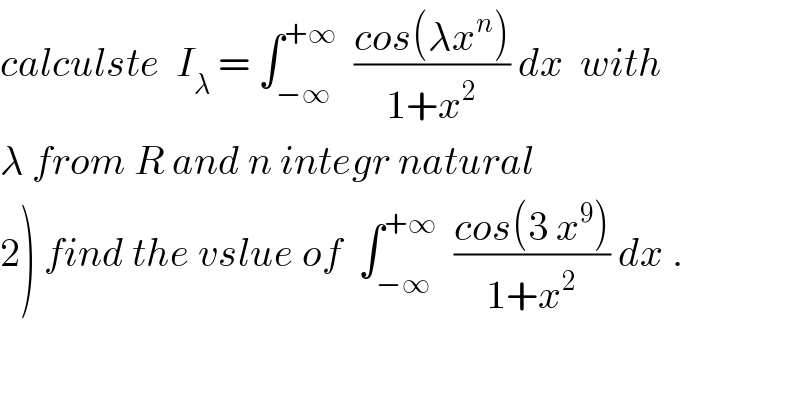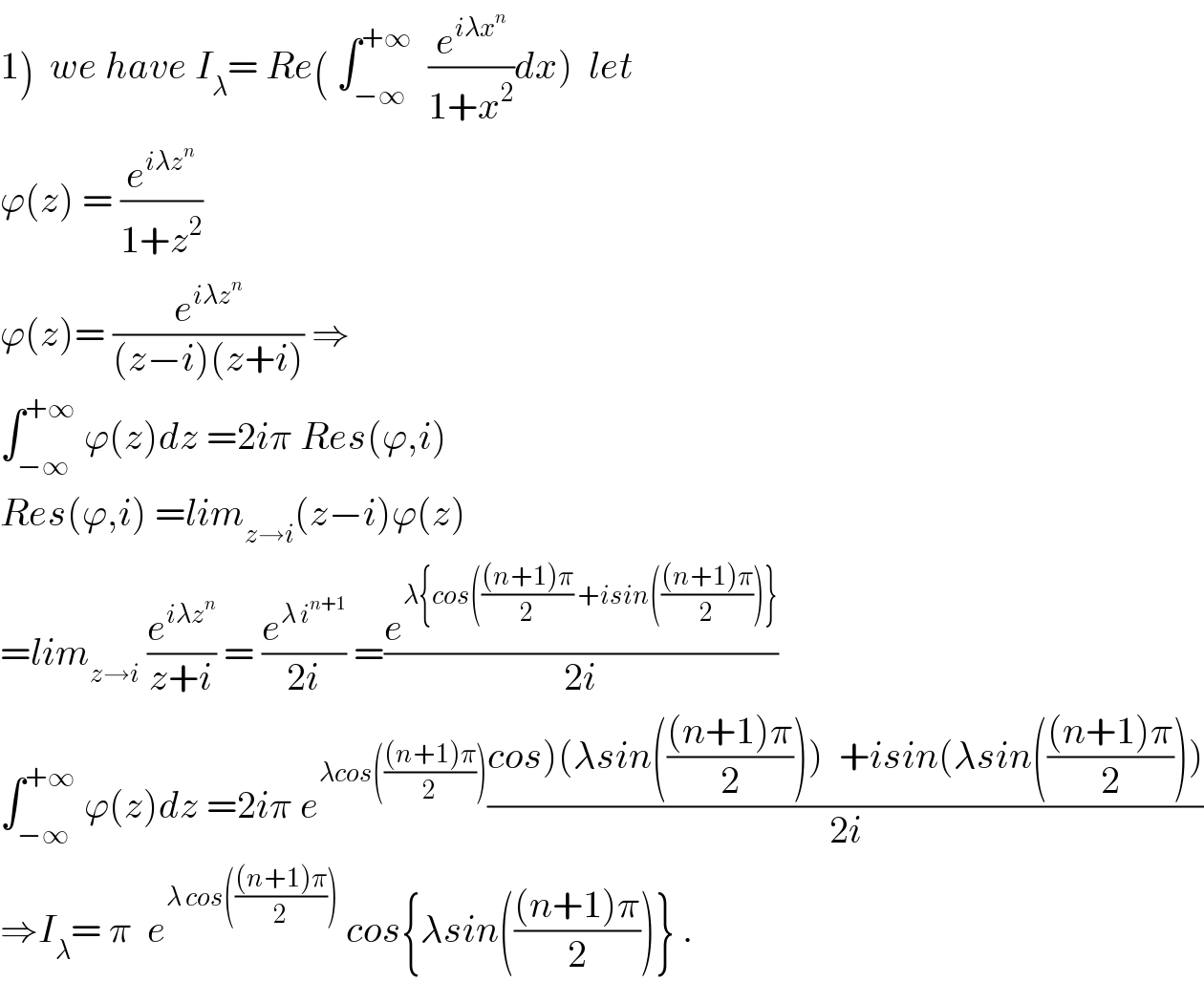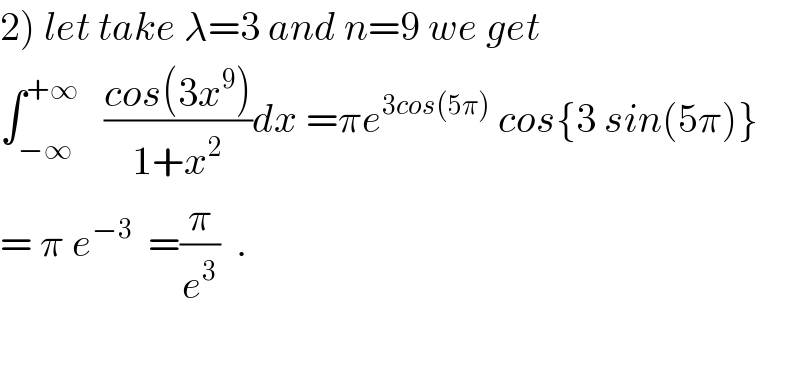
Question and Answers Forum
Question Number 39787 by abdo mathsup 649 cc last updated on 10/Jul/18

Commented by abdo mathsup 649 cc last updated on 11/Jul/18

Commented by math khazana by abdo last updated on 12/Jul/18

| ||
Question and Answers Forum | ||
Question Number 39787 by abdo mathsup 649 cc last updated on 10/Jul/18 | ||
 | ||
Commented by abdo mathsup 649 cc last updated on 11/Jul/18 | ||
 | ||
Commented by math khazana by abdo last updated on 12/Jul/18 | ||
 | ||